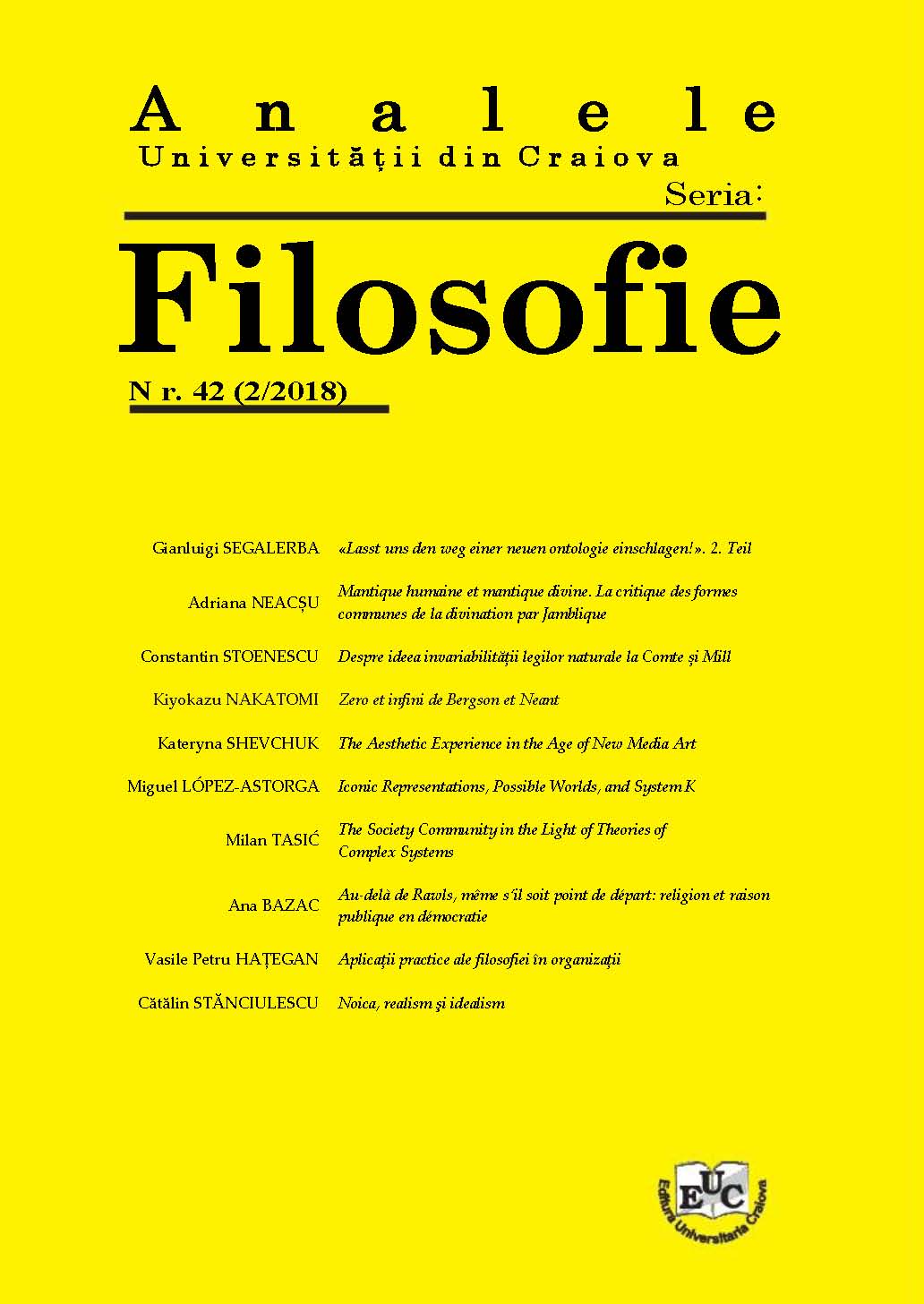THE SOCIETY COMMUNITY IN THE LIGHT OF THEORIES OF COMPLEX SYSTEMS
THE SOCIETY COMMUNITY IN THE LIGHT OF THEORIES OF COMPLEX SYSTEMS
Author(s): Milan TasićSubject(s): Political Philosophy, Government/Political systems
Published by: Editura Universitaria Craiova
Keywords: method; physics; philosophy of state; democracy; chaos; order; values;
Summary/Abstract: Thomas Hobbes, in the XVIIth century, was impressed by the results of a new science, „the natural philosophy”, bearing in mind the benefit it brought to the human race, owing primarily to the „new methods” that were indicated by the great scientists in the New age: Galileo, Bacon, Descartes, etc., as well as to the discoveries such as field-glass, compass, gunpowder, or book printing. Or, to the fact that now, for the first time, the subject matter of physics as a science was properly determined (Galileo), and which would aim to describe the movement of bodies in space, etc. This made him to believe that „the philosophy of state” and „philosophy of morality” could follow the path of this science too and reveal the true laws of human society, of which the basic one is „’the law of war and peace”. „War is possible,” says Hobbs, because people do not know about his cause ... „, etc., so now this philosopher, after the example of physics, is intending to every science – natural as well as social one – to be a science of „body”. Then the philosophy of state would deal with „artificial bodies”, what exactly is a state community, because it is created, according to Hobbes, by human individuals, with their free will, on a certain territory by denouncing of some parts of their „natural rights” and by transferring them to a sovereign. And the best form of government is, according to him, the absolute monarchy, headed by the king, as „natural God” or „mortal God”. Today, four centuries after Hobbes, we find that social sciences have not yet found a reliable basis for the state community to provide a harmonious life in peace for its members, although a human, by its very nature, did not cease to strive for a common life in love, justice and beauty. As once the absolute monarchy, which Hobbes glorifies, without pointing out its failings, today the most praised form of government is „democracy”, and again its visible defects are largely circumvented. Although it was criticized already at the time of its birth from Plato, Aristotle and others, this form of government is now gaining the halo of the „new medieval”, for it is easily perceived that in „democratic countries” decision-making and genuine authority do not belong to the people, but to the few individuals and groups. Therefore, in our view, the perspective of a possible science of society – say, after the idea of Hobbes – should be sought after the example of a number of theories developing nowadays, such as the theory of complex systems, information theory, chaos theory, artificial intelligence, etc., for it is shown that the results of these (natural) sciences can properly apply to it. If, for example, to the definition of the chaos theory belong the fact that minor changes in the initial conditions lead to significant changes in the results, it would be the case with the social community too, which is equally sensitive to apparently insignificant changes within it. Etc. And in so far as one of results of the Nobel Prize winner Ilya Prigogine is that irreversible dynamic systems – and such a system is a state community too – can move from order to chaos, as well as from chaos to order. And what gives hope, from the most diverse places in the society, could be triggered elements of a possible resistance against the oppression and enslavement in the long run. Having in mind today’s everyday recognizable tendency of establishing a „new world order” that is at work, and which is not, by all accounts, „tailor-made” for the whole community of people on the planet. Then, using the results of such a science, the members of a community would be able to find optimal organizational forms, in order to achieve a sustainable life at that time in a system of values they would rethought themselves.
Journal: ANALELE UNIVERSITĂȚII DIN CRAIOVA. SERIA FILOSOFIE
- Issue Year: 2/2018
- Issue No: 42
- Page Range: 137-149
- Page Count: 13
- Language: English

